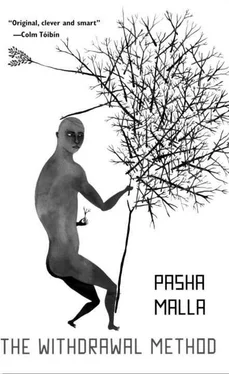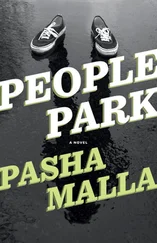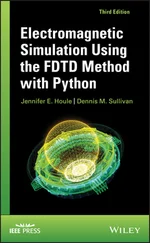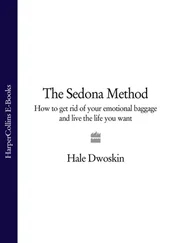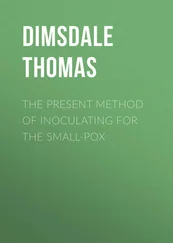IN THE BASEMENT were cabinets full of Turk-related lore: articles in French, German, Italian, Spanish, and English detailing its conquests around Europe. Silas and Mary made their way slowly down the hall, shining their lamp over the exhibit. Here was a picture of its inventor, the Austrian Wolfgang von Kempelen, and a copy of the plans for the Turk's original design — all machinery, with no space for a man inside.
Another display was dedicated to the famed showman who brought the Turk to America, the German inventor Johann Maelzel. A brief biographical sketch was paired with a reconstruction of his Automaton Trumpeter, which played various tunes through the rhythmic pumping of a mechanical bellows. Maelzel was remembered in the exhibit as "a great entertainer who perished at sea of natural causes."
Nearby, among a collection of various relics, was a framed essay by Edgar Allan Poe exposing the secrets of the Turk. His guesses were close, noted Silas, reading in the lamplight, but certainly not the entire truth.
Then the wooden floor gave way to red carpet laid out in a long strip leading to the far end of the Lower Hall. This they followed in almost reverential silence, the lantern leading the way along, then up a short flight of stairs to a sort of proscenium before a high curtain.
And then there it was, perched squatly centre stage. It had been more than a year since Silas had seen the Turk, and in the shuddering yellow light it seemed even more menacing than he remembered: the eyes twinkled in an eerily lifelike way. He held the lantern as Mary crept forward.
"Oh, my," she said, standing before the cabinet, running her hand over the chessboard. "This really is remarkable, Silas. What was your father charging for demonstrations before he sold it to the museum?"
"Back when he had me working inside it was fifty cents or so to play, but I think after I left he offered private viewings for twice that." Silas resisted adding anything about the machine being worth more empty than it was with him inside. "He bought it for twenty-five dollars, so I'm sure he made the money back fairly quickly."
Mary circled around until she stood beside the seated figure. She reached out her hand to its face, but Silas called out, "Don't touch it!"
"Please, Silas. I'm not going to break it."
"Sorry. It's likely better not to leave evidence, is all."
"Evidence?" Mary giggled.
"Evidence. We were never here, remember?"
"Right." Mary stood staring into the light for a moment. The contrast of her beauty and the ugliness of the Turk struck Silas then. On her face was an expression of curiosity, intrigue, and a trace of fear — she seemed achingly human, vulnerable, but ready to be delighted. The Turk, meanwhile, glowered at him with a sneer of self-satisfaction and scorn. Silas felt ridiculous hating a machine, but he could summon no other emotion.
Mary tapped the cabinet. "Now, will you please show me how this thing works?"
Silas sighed. "Are you sure you want to know? Many people prefer to believe that it works on its own. Your father, for instance, left the room when we offered to explain it."
"That's my father. A dreamer."
"All right then."
Silas moved beside Mary and, kneeling down, placed the lantern on the floor so it illuminated the back of the cabinet. She crouched beside him, her hand on his back.
"Okay," said Silas. Flipping the catches he swung the back of the cabinet open and proceeded to demonstrate where he had sat and how the magnets below worked the pieces on the board above. He showed her the candle holders, the ventilation shaft, the sliding base that allowed him to move from one side to the other when the front doors were opened to display the interior, and the button to make it speak — which he pressed.
"Check," said the Turk, and Silas flinched.
That voice! Hearing it after so long tweaked and pulled at loose strings of memory until, finally, everything came tumbling back: the stifling smoke of the candles, the claustrophobia, the muffled wonder of Philadelphia's aristocracy as the automaton bested another of their rank. And the booming laugh of his father, championing the machine, mocking his peers in their defeat.
Silas paused, reeling, rocked on his heels, and landed with a thud on his back on the carpeted stage.
Mary was at his side, her hand against the side of his face. "Are you all right?"
Silas sighed. "I'm fine."
"Why are you lying down?" Mary stroked his cheek, smiled. "Is the tour over?"
He touched her hand, breathed. "You know, Mary, my father is dying."
"He's what?"
"Dying. And I am next in line to carry on his practice and work."
"Oh, no, Silas. That's so sad. I mean," she added hurriedly, "about your father. And the practice? This is something you'll be happy doing?"
Silas ran his fingers up Mary's arm to her elbow. She took his hand, adjusted her skirts, reclined, and lay down beside him, resting her head on his chest. Inches away, the lantern flickered, casting washes of amber light over them.
"Oh, it's fine. But I just feel that there's more to life than seeing patients and finding antidotes for snake venom. All his life my father has dedicated every day to science, to a pursuit of the truth, and look at him — the man knows his maths and equations, but he'd never understand the sort of truth you'd find in poetry or art. And look at his relationship with my mother. She's a wonderful woman, but he treats her like she doesn't even exist."
Silas thought about this. He looked up at the Turk, looming above them: from behind it was considerably less impressive, just some tatty old robes hanging limply off a brittle wooden skeleton. A machine, heartless and vacant, useless without a human hand to guide it.
Mary leaned in and kissed Silas, then — fully, deeply, on the mouth. He closed his eyes, felt her climb on top of him, skirts swishing and falling, heavy and enveloping his legs as well as hers, and he kissed her back, ran his hands from her neck down the sides of her body, along the curve of her hips, farther down.
As her mouth moved over his neck he reached as low as he could, grabbing handfuls of fabric, tugging upwards, hitching. The layers amazed him; there seemed enough material down there to outfit a small orchestra. He grabbed her hips and flipped her; Mary giggled, beneath him now, then nibbled at his earlobe, her breath coming heavier, and the skirts were finally nearing their end, he could feel garters somewhere beneath a petticoat and -
Silas paused, sniffing. A smell, a familiar smell, came wafting into his nostrils from nearby, something acrid and sour that he knew only to associate with danger, with emergency. He opened his eyes. The hall was bright around them; an orange glow bathed the room. Was it dawn already?
"Fire!" screamed Mary, flinging Silas off her. He rolled down the steps, his head smacking off each one as he went. Mary, meanwhile, scuttled backwards, crablike, away from where the lantern had tipped and spilled and flames were spreading hungrily up onto the curtains and along the carpet, toward the Turk. "Fire!" she screamed again.
At the bottom of the steps Silas stood, trying groggily to focus. His head hurt; his vision swam. Mary appeared at his side. "Silas, the lantern! We've knocked it over!"
Silas nodded — slowly, ponderously.
"Come on!"
He looked up at the Turk: flames a foot high, gathering intensity, fluttered around it on the stage. Smoke came billowing off the fire in waves, the curtains flapping and urging it on. Quickly the cabinet was alight, catching the Turk's garments. Silas stood, mouth agape. It was beautiful.
A hand slapped him across the face. Mary stood before him, shoulders heaving. "Silas, the museum is on fire, and we need to leave. Do you hear me? What's wrong with you?"
Читать дальше
